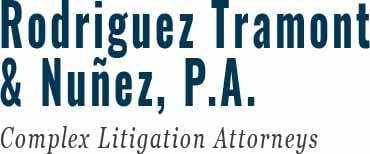Tax Return Warning Signs
CPAs and accountants are the first line of defense for their clients who invest with a financial advisor or brokerage firm. As a tax advisor, your review of client tax returns is critical for the detection of warning signs for potential financial advisor misconduct. The following warning signs should assist you in the determination of whether your clients’ investment accounts have been mishandled, according to securities industry rules and regulations. The various causes of action are considered sales practice violations according to Financial Industry Regulatory Authority (FINRA) rules and regulations.
Account Losses:
Account losses may be a sign of mismanagement of a client’s account, especially when a client has a limited ability to assume such losses. The account performance relative to a suitable investment benchmark can determine the amount of damages. The suitable investment benchmark is determined based upon an investor’s investment objectives, risk tolerance and investment time horizon.
Short-Term Holding Periods:
A review of the holding periods for investments may indicate whether the transactions were for legitimate investment purposes or for the generation of additional commissions for the financial advisor. The following are statistical measures of annualized account costs and turnover thresholds that industry experts believe reflect different levels of evidence for a “churning” or excessive trading claim.
| Cost Ratio | Turnover Rate | Level of Evidence |
| 4% | 2 times | Inference |
| 8% | 4 times | Presumption |
| 12% | 6 times | Conclusive |
Margin Interest Expense:
The use of margin exposes a client’s portfolio to the risk of margin calls. Margin interest increases the breakeven point for any investment strategy and is included in account costs when evaluating the cost ratios for “churning” or excessive trading claims. According to academic studies, the use of margin to diversify a portfolio does not reduce the overall level of risk, therefore, the use of margin is unsuitable in many situations. Margin interest deductions can be found on Schedules A and E.
Using Account for Checking & Credit Card Activity:
In some instances, a financial advisor will sell winning positions to book profits to gain client confidence to support continued trading activity. It is also common for a financial advisor to hold losing stock positions too long before they are sold. Without a disciplined, professional approach to investing by cutting investment losses and letting investment winners run, through the use of stop loss limit orders, client accounts can become mismanaged. A review of the holding periods for the transactions reflected on the Schedule D should provide indication of this potential mishandling of a client’s account.
Winners Sold Quickly, Losers Held:
It is dangerous for clients to use checks or credit cards offered through brokerage accounts. Clients can lose track of spending discipline and brokers tend to over invest funds in non-cash securities resulting in the ultimate use of margin as a source of credit. The itemization of personal expenses paid for through use of margin should be segregated from total margin balance to determine the deduction portion of margin interest.
Securities Concentration:
Concentration of your investments into securities of a single issuer, of a single asset category, or a single type of investment product is considered securities concentration. Maintaining a concentrated stock position is unsuitable for any investor because of the risks associated with this strategy. A financial advisor who fails to recommend diversification or risk management strategies may be held responsible for losses sustained.
Switching (Mutual Fund and Variable Annuity):
An investment in a mutual fund or variable annuity through sales proceeds from a another mutual fund family or variable annuity insurance company with similar features and investment options is prohibited, unless there is an economic benefit to the investor. If there is no economic benefit to the investor and the reason for the recommendation was solely for the generation of commissions, the transaction is considered a “Switch” transaction and is a violation of securities and insurance industry conduct rules. An IRA rollover account funded with a variable annuity may be unsuitable investment advice, a variable annuity simply adds an additional layer of costs with no additional tax benefits. The surrender charges and greater costs associated with the variable annuity are a function of the compensation paid to a financial advisor.
Personal Retirement Plans Funded with Life Insurance:
Non-qualified retirement plans offered to key employees through businesses that are funded with insurance products are generally suitable. The recommendation for an individual client to purchase large amounts of life insurance as a “retirement” plan has raised questions of adequate disclosure and suitability, according to securities industry standards. Taxable events apply to policies that lapse after years of withdrawals have been made that exceed the premiums paid.

